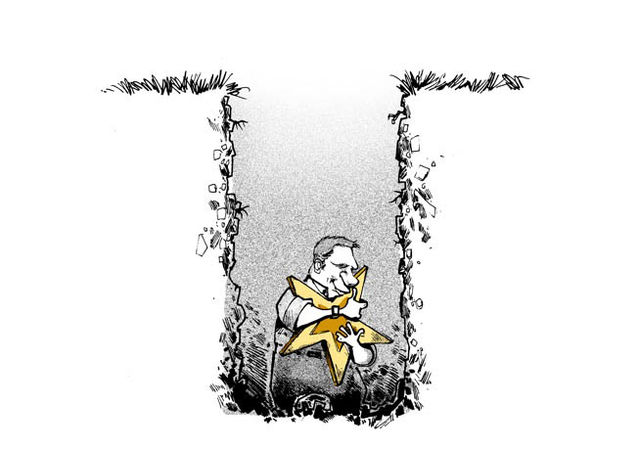
One overarching lesson we have learned from our research at MIT and Yale is that you can’t change someone else’s mind or their habits. The harder you try, the more resistance you face, and frustrated you become. You may retreat and fail, or worse, lose your cool and harm your cause.
But there is a better way. Concentrate instead on the context you’re creating for the other person to explore a new perspective or behavior. A key part of that context is your own way of being in the conversation (your stance or attitude).
Consider “Michaela,” a young woman passionate about health whose story is among those that appear in our new book, “Breaking Through Gridlock: The Power of Conversation in a Polarized World.” Her mother is overweight, due in part to her eating habits. Michaela has tried to get her mom to change her diet. She has repeatedly told her which foods are healthy and which aren’t. She’s stressed the scary consequences of obesity and diabetes. It doesn’t work, but she continues to try every time they talk. Their conversations have grown so tired and uncomfortable, they no longer share meals together.
This situation sounds very familiar. In fact, we see the same pattern in conversations around a range of topics from saving energy or ending sexism in the workplace, to voting in heated elections.
To face these situations effectively, the first step is to shift your attention away from the other person and onto yourself instead. Ask yourself--What is your way of being? What kind of atmosphere are you creating for the conversation? When Michaela first reflected on her way of being with her mom, she said “I am educating.” When asked: “How would your mother describe your way of being?” After a pause, she said, “nagging… disrespectful.” Michaela saw this wasn’t going to work.
The bait in the trap
So why do we get stuck in this kind of trap? Why do we choose a way of being that, deep down, we know won’t be effective? We get stuck because there is a secondary gain or a psychological reward that baits the trap. It’s what authors Bob Kegan and Lisa Lahey call a “Hidden Competing Commitment.”

When asked what that bait was, Michaela acknowledged that she gets to feel right and righteous about her mother’s eating habits.
This is very human. To move forward, you identify the bait and let it go. Michaela was asked to “Imagine if you were to let go of being right. Think instead about what you really want for your relationship with your mother. If you created a new way of being, what would that be?”
Michaela thought for a moment and replied, “I could be loving… maybe collaborative.”
Michaela reported back a few weeks later:
After we spoke, I sat down to have a conversation with my mom about her being and eating healthier... I was worried it would just fall back into the same old pattern of us yelling and arguing with each other. That being said, when I told her that I wanted to try and approach this conversation in a different manner she seemed very open to it. Throughout the conversation, we both discussed that along with being healthier, it could also serve as a chance to make time for each other in our busy lives. We
agreed to try and do some meal planning for dinners together, to go grocery shopping together and to even help each other cook. I can say with pride that last week we actually cooked together and ate dinner with each other at the kitchen table three nights out of the week. In the last year and half we haven’t eaten dinner together at the table ONCE, so three times in one week is a definite improvement.
We see this consistently in our work. People get stuck. They reflect on their way of being, and the psychological bait in the trap. And, when they think carefully about what they want for the relationship, they create new ways of being and new pathways for action. They get unstuck.
Will conversations like this create consensus within our larger polarized world? It’s a great place to start. In our work with for-profit and non-profit CEOs and directors, we’ve learned that navigating these conversations in your closest relationships is how leaders develop powerfully transformative conversations that are later shared on a wider public stage. Michaela’s success is a win for her mom’s health, a win for their relationship, and sets her up to be a more powerful health advocate for others going forward.
Jason Jay is a senior lecturer at the MIT Sloan School of Management where he directs its Sustainability Initiative. He holds a PhD in management from MIT Sloan, a master’s in education from Harvard University, and a bachelor’s in psychology and a master’s in education from Harvard.
Gabriel Grant is the CEO of Human Partners, cofounder of the Byron Fellowship Educational Foundation, and a doctoral candidate at Yale’s School of Forestry and Environmental Studies. He holds a master’s in leadership and sustainability from Yale and a master’s in ecological systems engineering and a bachelor’s in physics from Purdue.
Jason and Gabriel are the authors of the newly released Breaking Through Gridlock: The Power of Conversation in a Polarized World (Berrett-Koehler Publishers)

